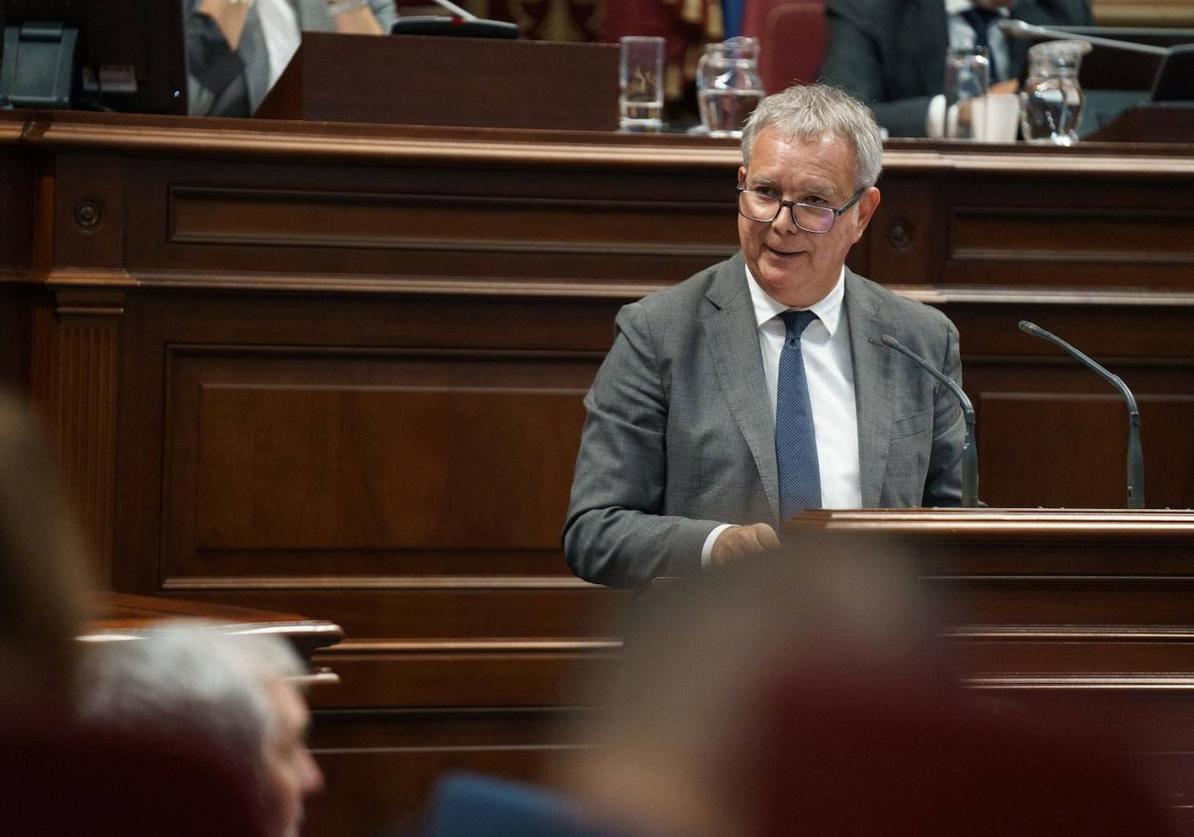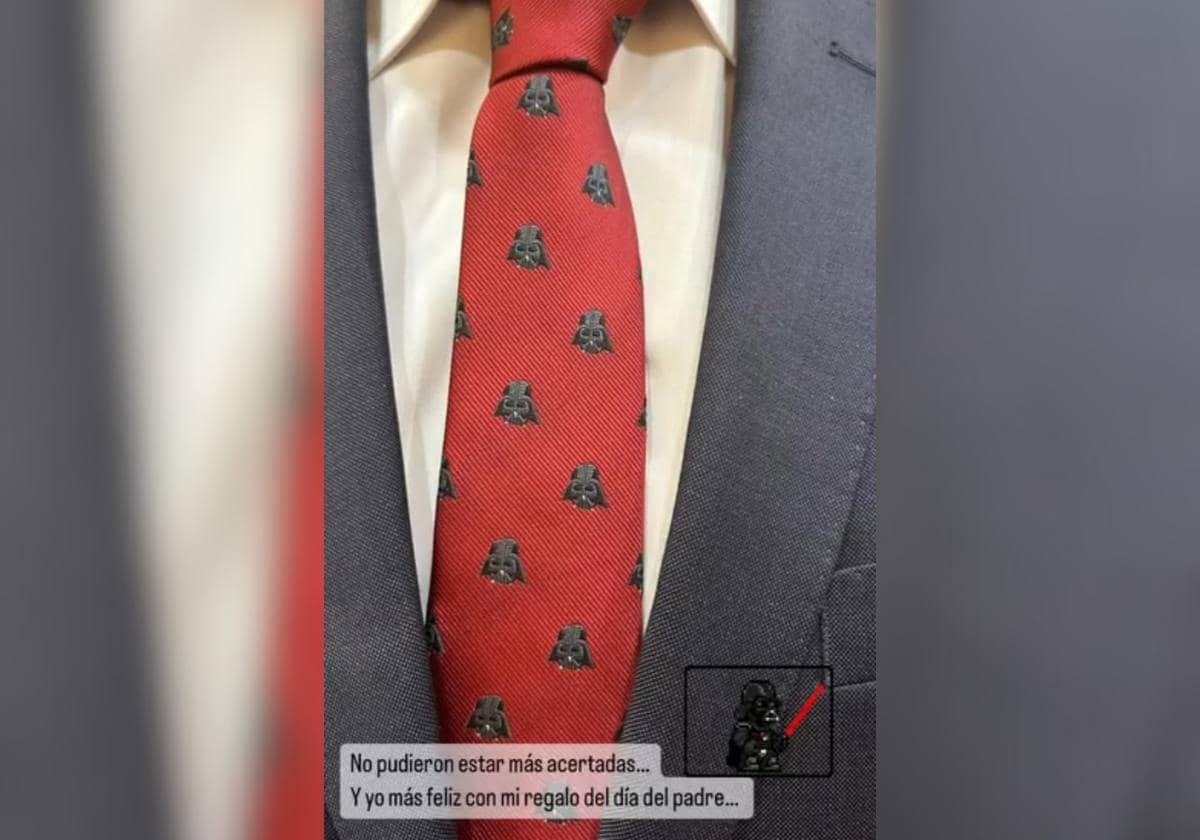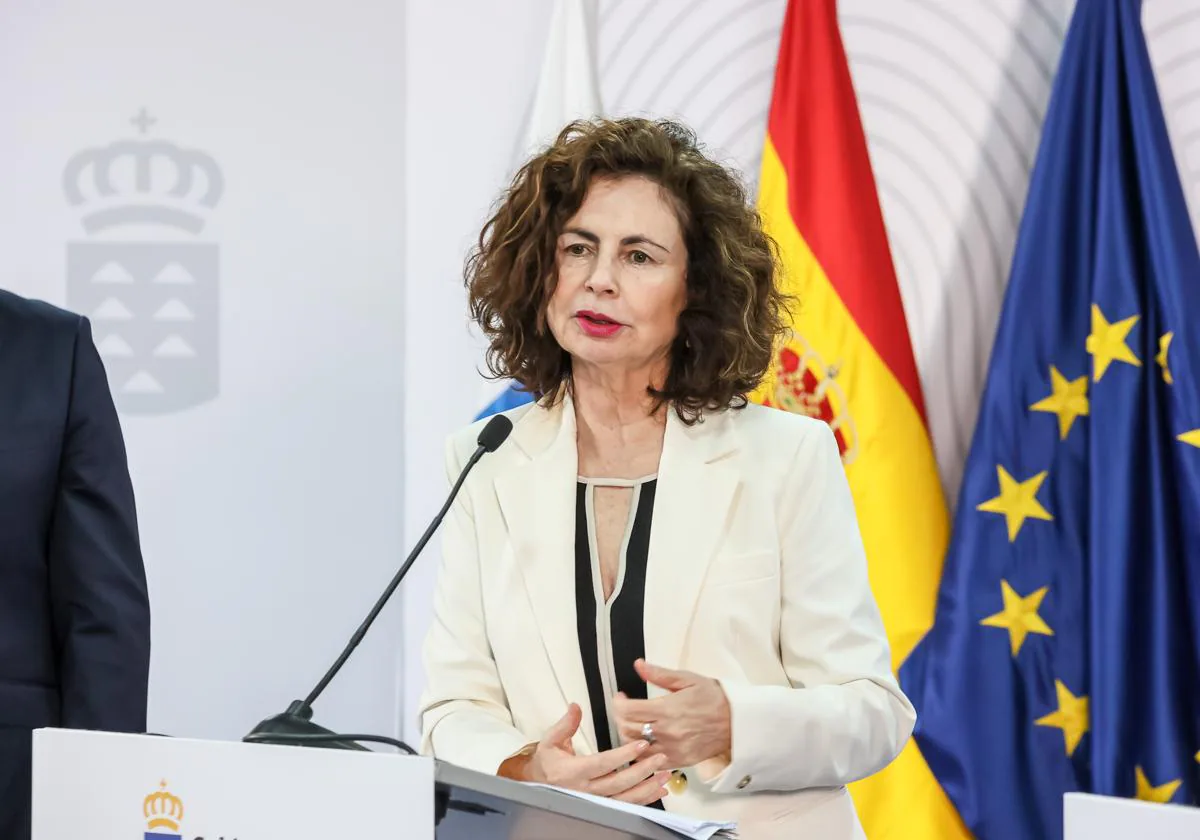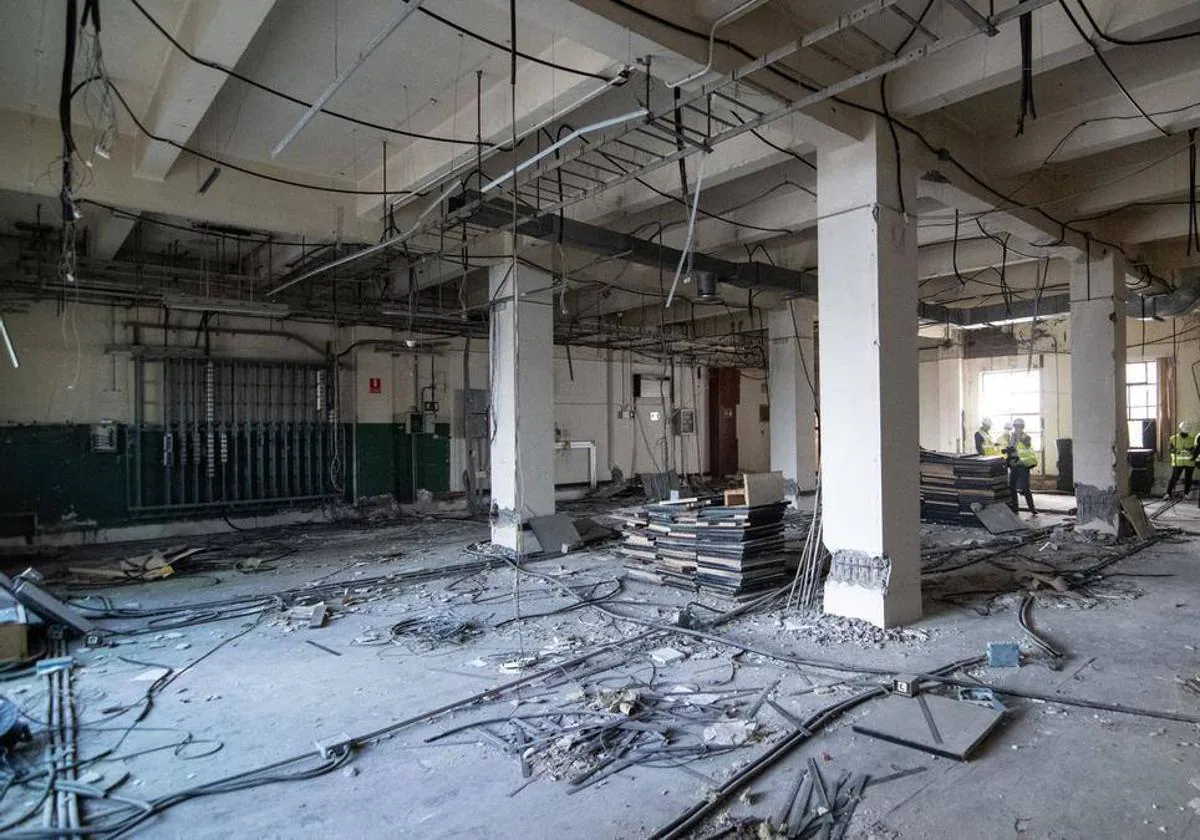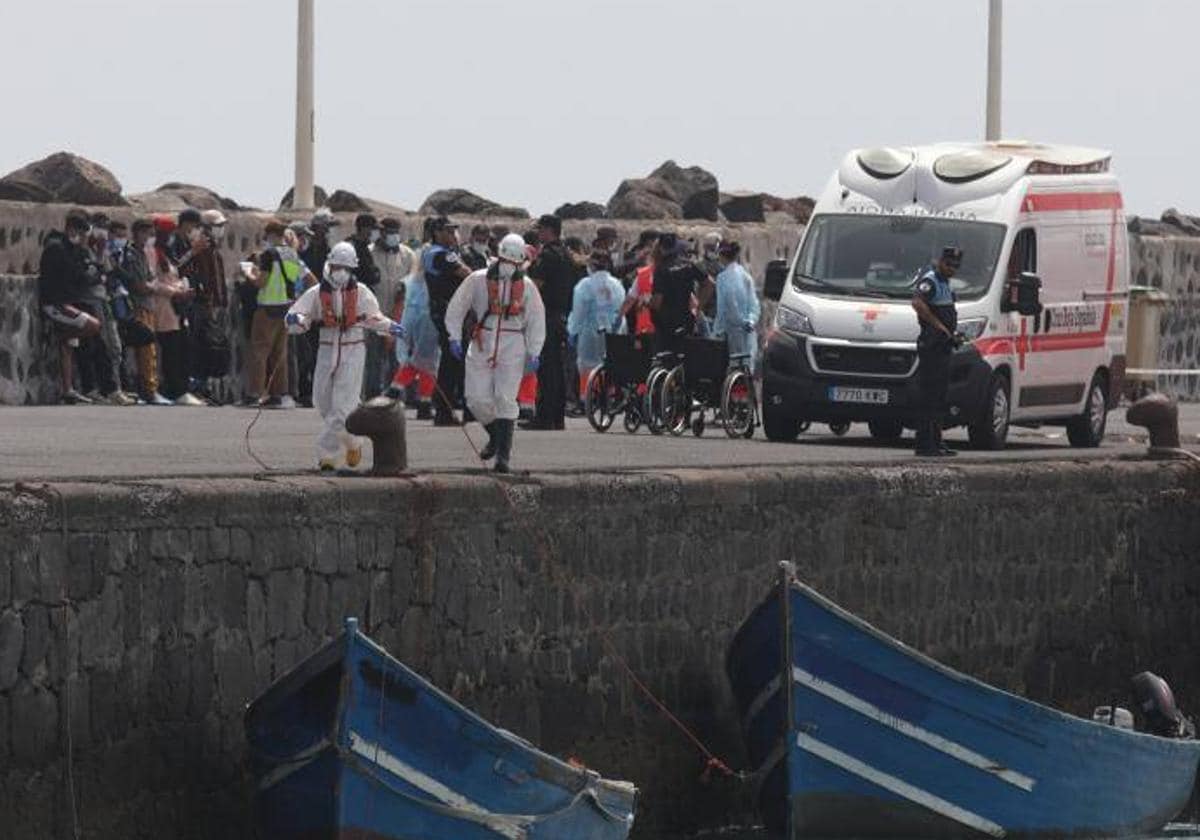"They want to eliminate the labor reform for doctrinal and sectarian reasons"

The event, organized by the foundation that connects the Galician public university with private companies, was titled Dialogue about or future, but in it a former vice president of the Xunta de Galicia between 1987 and 1990 and a former president of the Government of Spain between 2011 and 2018 spoke. Mariano Rajoy and Xosé Luís Barreiro Rivas, known since the time of their membership in the Galician Popular Alliance and one day fierce internal rivals dedicated a couple of hours this Friday to offer their considerations in Santiago de Compostela to an audience of businessmen and high-ranking officials of the Galician Executive, including Alberto Núñez Feijóo. It also served Rajoy to delve into the rewriting of his years in Moncloa, defending his legacy and, in a singular way, his labor reform.
Mariano Rajoy reappears in A Toxa (Pontevedra) and blames the Government for the parties not reaching agreements on the pandemic
Know more
"When they tell me that for doctrinal or sectarian reasons they want to eliminate the reform of the labor market, I throw my hands at my head," he said. In this way he responded to the complicated questions formulated by Barreiro Rivas about what to do in the face of the economic crisis that is coming as a result of the coronavirus. Let's see Rajoy, the labor reform, which the Executive of Sánchez has promised to repeal, is an essential tool because "it has contributed to making the economy more flexible." Lowering the cost of dismissal, reducing the bargaining power of workers or increasing the precariousness that point to studies of its effects they did not enter into the ex-president's disquisition.
But that was his clearest concession to neoliberal dogma. The Rajoy of 2020, as was already glimpsed in the La Toja Forum convened in A Toxa last week, is rather slightly Keynesian. His reading of the crisis of 2012 contrasted greatly with the fallacies of his colleague, determined to hold the public responsible for the failures of the economic system and manifestly contrary to public spending. The former president, however, assured "to agree with the ERTE, with the minimum income and with the State guaranteeing the liquidity of the companies." In other words, with the bulk of the economic strategy of the PSOE and Podemos coalition against the consequences of the pandemic: “I am in favor of what was done. And there have to be expansive budgets ”.
But there were also notices to sailors. He is concerned about the deficit and generating debt, and believes that the accounts for 2022 cannot be like those for 2021. At the same time, he applauds European policies. The current ones, which represent a practical amendment to those deployed in the years of the Great Recession. “In 2012, Spain and Greece were fifth division countries. There were some brutal clashes in Europe ”, he recalled, although at that time, when he was presiding over the Government, he did not say it in such a loud voice. Now everything is different, he came to explain, and praised the community employment plan, the investments of the European Investment Bank, the design of reconstruction or the purchase of debt by the European Central Bank. Mariano Rajoy spoke this Friday in Santiago as the most daring Social Democrats in southern Europe spoke in 2013.
Europe and populisms
Rajoy's speech was, in any case, a fiery defense of the architecture of the European Union. With a relationship with history, at times, lateral. Like when he repeated topics about “prosperity” after World War II without even mentioning that in Spain there were 40 years of fascist dictatorship just in that time period. But let the details not cloud the European ideology. He admitted that yes, there are problems, such as Brexit "or what some are doing in Hungary and Poland." What "some do in Hungary" is President Viktor Orban, of the extreme right and framed in their "illiberal" currents, and whom Pablo Casado's PP supported to prevent his expulsion from the European People's Party.
And it is that in the reflections of the former president on Europe and populisms, induced by a Barreiro Rivas determined to reveal "the role of citizens in the generation and aggravation of crises", they carried messages for the current leadership of the PP. Appeals to "moderation and balance" and his repeated references to Angela Merke's grand coalition model could be interpreted in this way.For Rajoy, there are only three political ideas worthy of leading the country: social democracy, Christian democracy and liberalism. "90% of Spaniards are there, in balance and good sense," he said.
At no time did he explicitly speak of Casado, it is true. But his criticism of Le Pen or the "extreme right party with 10%" in Germany and his chants to the need for alliances between PSOE and PP could be read as a challenge to the current line of the formation. He was more direct when he touched on the other side of the political spectrum. "Here it is preferred to access power supported by radical parties of the extreme left and who question the Constitution and national unity," he said. And he launched into the mantra that Spain is "in the hands of Podemos" and that "creates nothing but difficulties." Rajoy's are the "traditional parties", those that, he proclaimed, "made Europe" and, in a statement without much historical basis, the democracy of 1978.
Those continuous calls to common sense, so typical of the public figure Rajoy, hardly fit in with the practices of his government that Operation Kitchen now uncovers, but they do not prevent him from taking up the chair. Neither does the fact that the motion of censure that evicted him from the Presidency of the Government was due to the PP's conviction for corruption. There was another element in common with his partner, Barreiro Rivas, whose political career ended abruptly in 1990 with a conviction for prevarication in 1990.


